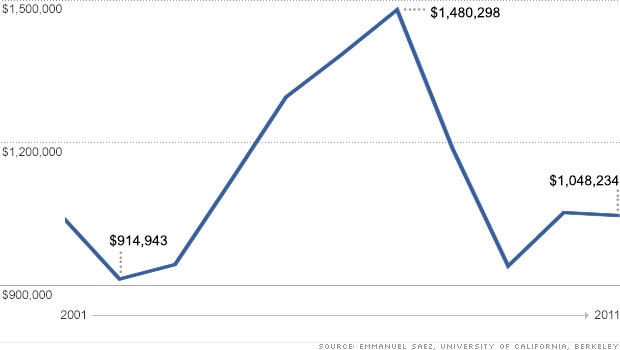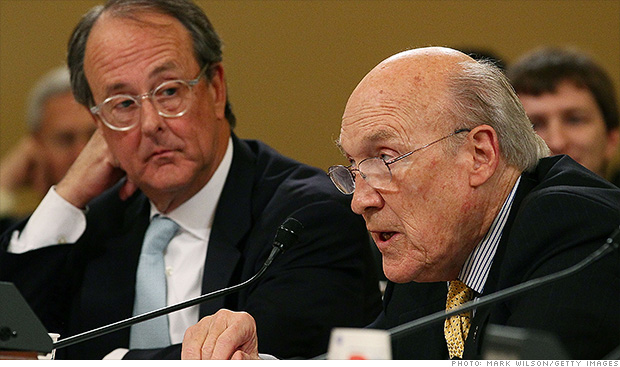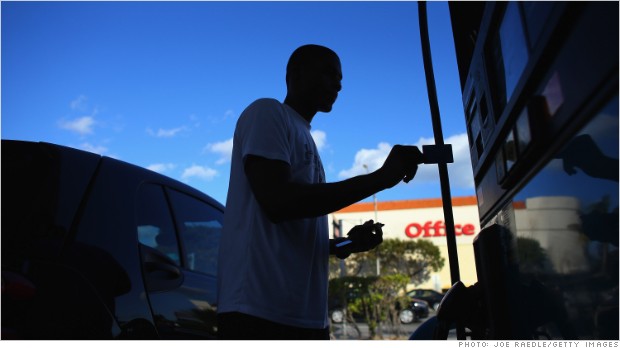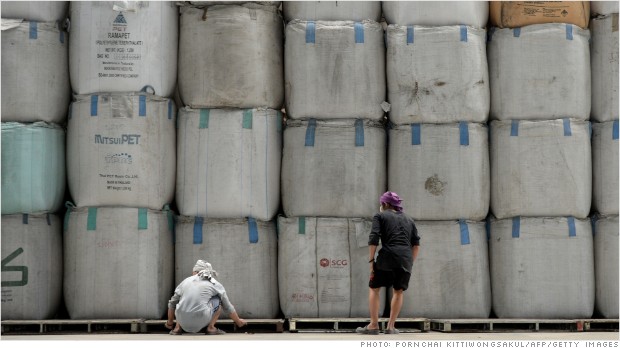
Even though Christopher Warner's mortgage debt was extinguished upon his foreclosure, debt collectors are still seeking $120,000.
NEW YORK (CNNMoney)
In these so-called zombie foreclosures, borrowers move out of their homes after their bank schedules a foreclosure auction only to find out months or years later that the auction never took place or the bank never transferred the deed to the house. That means the borrower still technically owns the home, leaving them on the hook for property taxes, fees and for homeowners' association dues.
Since the housing bubble first burst seven years ago, almost two million properties have started the foreclosure process but never completed it, according to RealtyTrac. In half of those cases, the homeowner is fighting to stay in the home. But there are close to one million properties that are in some sort of foreclosure limbo. While no one knows the exact number, it's estimated that tens of thousands of those properties could be zombie foreclosures.
Many of these homes are in low-income communities where foreclosures are so difficult to sell that lenders sometimes delay taking possession of the property to save on taxes and other costs that then stay under the borrower's name.
Those debts can then go unpaid for years because the borrower is unaware they owe them, further slamming their credit score and making life after foreclosure even harder.
Related: 10 great foreclosure deals
"The most frustrating part is that I can't move on," said Rose Nathan, a 37-year-old office manager.
Nathan lost her South Bend, Ind., home in January 2009, after working out a deal with CitiMortgage to voluntarily walk away in a "deed in lieu of foreclosure."
"On Christmas Eve, the bank called and told me a sheriff's sale was coming and I had to move out right away," she said. "So that's what I did -- seven days after New Year's."
She sold her belongings and moved to Hawaii. Nearly two years later, she received a property tax bill from the City of South Bend for $5,000. The bank had never taken possession of the house.
Citi told her attorney, Judith Fox, that the holdup was due to a lien on the home that they were never told about. Nathan said she knew of no liens at the time of the transaction. Upon doing a title search, Fox found no evidence of a lien until well after the bank agreed to the deed-in-lieu deal.
Related: Million-dollar foreclosures
Meanwhile, the unpaid debt has crushed Nathan's credit score. The deed-in-lieu alone lowered her score by 80 to 120 points, but the unpaid debt meant her credit kept taking a hit. Eventually her credit card companies cut her off, even though she said she was making her payments.
Her auto loan now carries a 25% rate. Her car insurance premiums have skyrocketed. She can only afford a one-bedroom apartment where she lives with her three kids. And forget about buying another home. "Nobody will give me a mortgage," she said.
Citi declined to comment on the case. Nathan said she has since paid off the lien with the hope that Citi will take the deed on the home.
Mustapha Sesay, a 45 year-old father of two, thought he had lost his Brandywine, Md., home in 2008. But two years later, a debt collector called telling him he owed $70,000.
The holder of his second mortgage had never forgiven his debt -- even though the lender holding his primary mortgage had foreclosed on the home.
Typically the second mortgage holder is out of luck if there isn't enough cash from the foreclosure sale to pay off both the first and second lien, said Cheryl Cassell, director of the housing counselor network for the National Community Reinvestment Coalition. But, depending on state law, second mortgage holders can sue homeowners to pay off the notes -- even after they lose the home in a foreclosure or the lender can sell the debt to a collection agencies.
Related: 100 hardest hit foreclosure neighborhoods
In Sesay's case, the debt collector calls every week or two. He has had little luck stopping it. "I talk to credit counselors, lawyers," he said.
Sesay would have been well on the way to credit score recovery. But now, he said, "I could move to Alaska in winter and no one would lend me ice."
Bill Purdy, a real estate attorney in Soquel, Calif., said borrowers can't always trust lenders to file foreclosure paperwork properly. In November 2011, when his client Christopher Warner's Felton, Calif., home was auctioned off, his mortgage debt was fully extinguished -- standard practice based on California law.
Warner's lender, however, recorded $120,000 on its books as debt -- the difference between what he owed and what the house sold for -- and gave it to a collection agency. The debt has lowered Warner's credit score by an additional 100 points, he estimated.
"It nearly put me into bankruptcy," he said. He has hired Purdy to get the debt collectors off his back.
In a $25 billion settlement with the state attorneys general last spring, the nation's five largest mortgage lenders agreed to inform borrowers of any decision to forgo or delay a foreclosure. But victim's attorneys said the banks have not been careful about following that policy.
Borrowers can get credit counseling from community advocacy groups, like those affiliated with NeighborWorks America and NCRC. They can call the Mortgage Help Hotline to connect with a counselor near them. The organizations don't charge for their services and they are experienced in working with borrowers in trouble. ![]()
First Published: February 20, 2013: 6:28 AM ET








